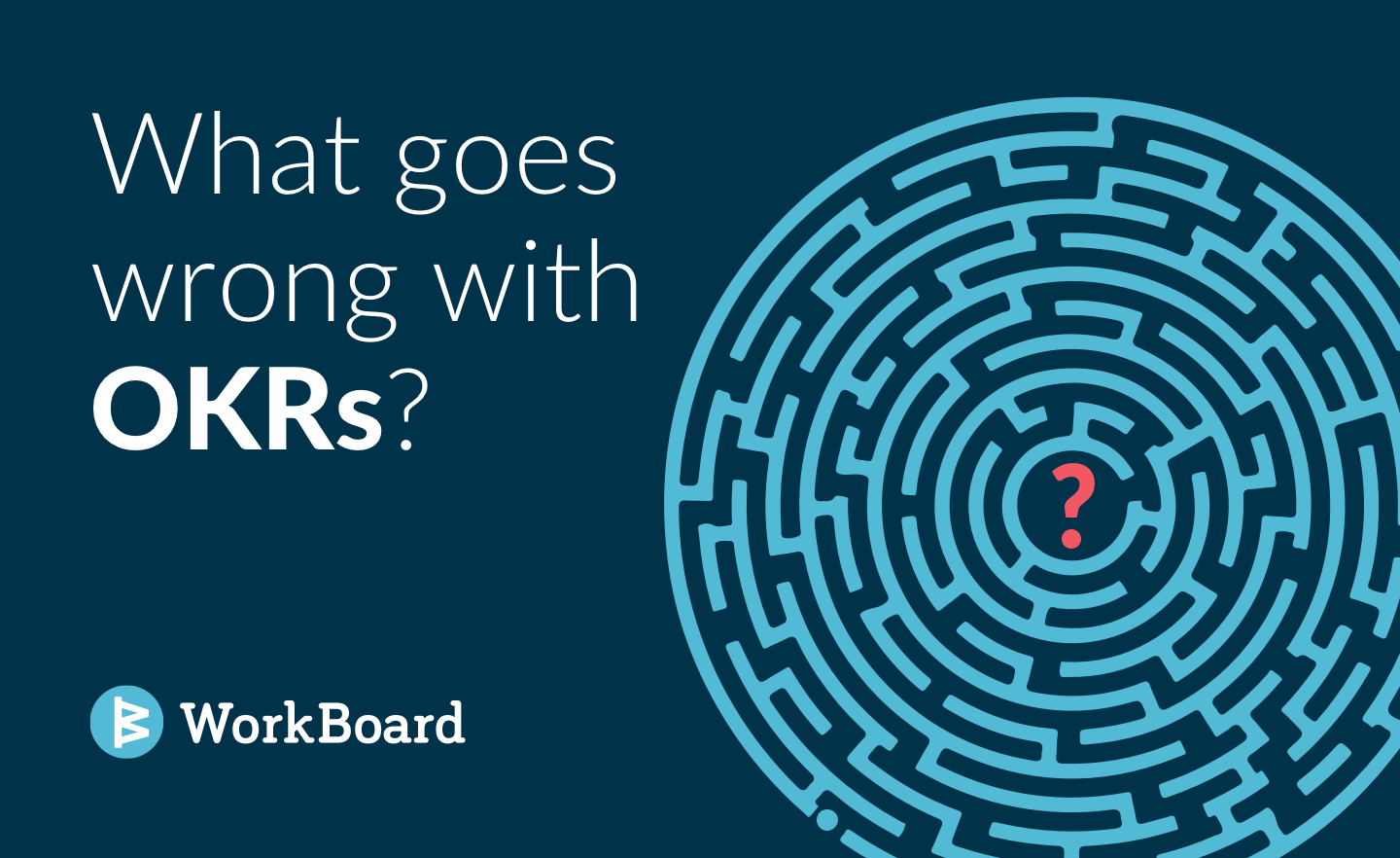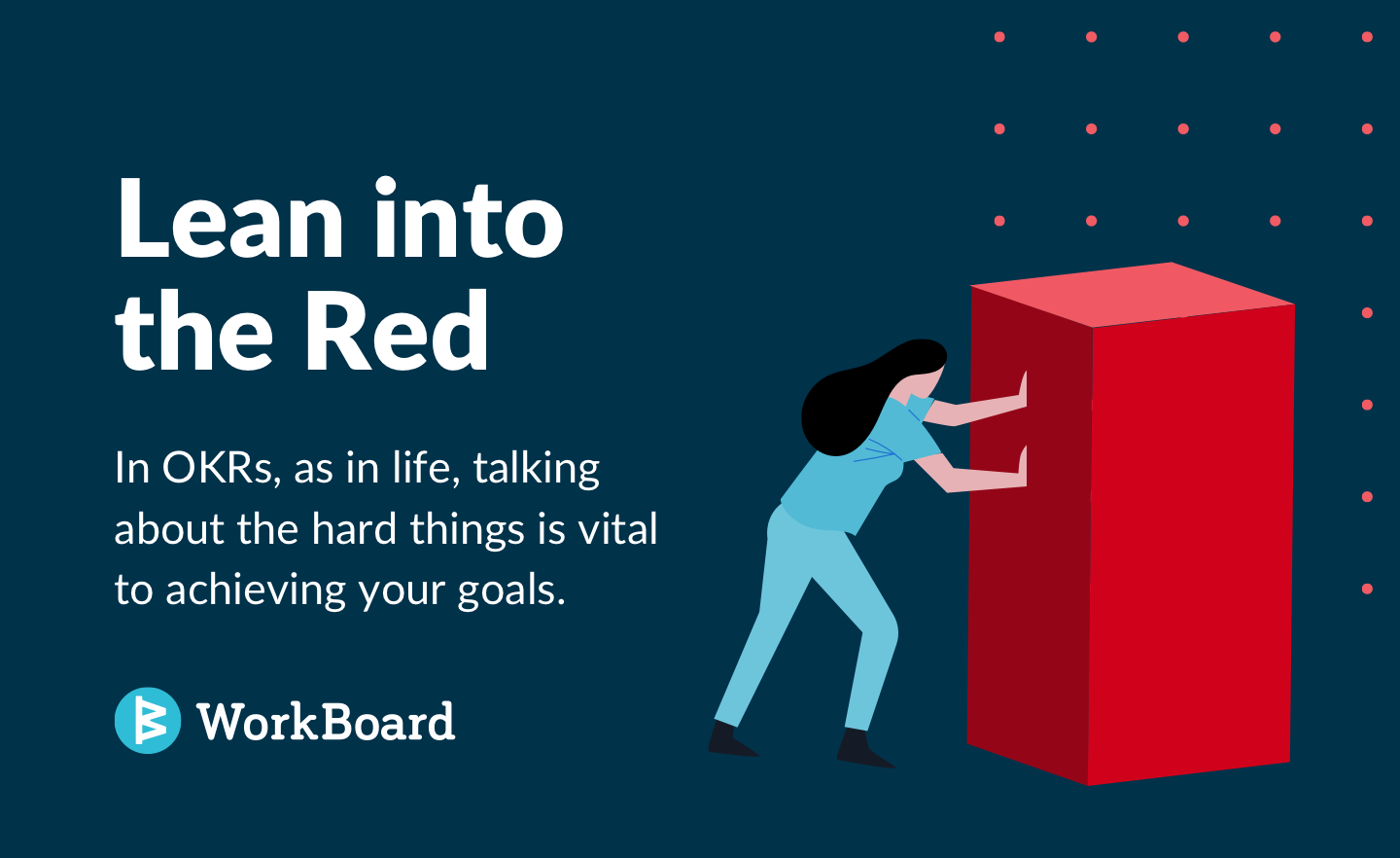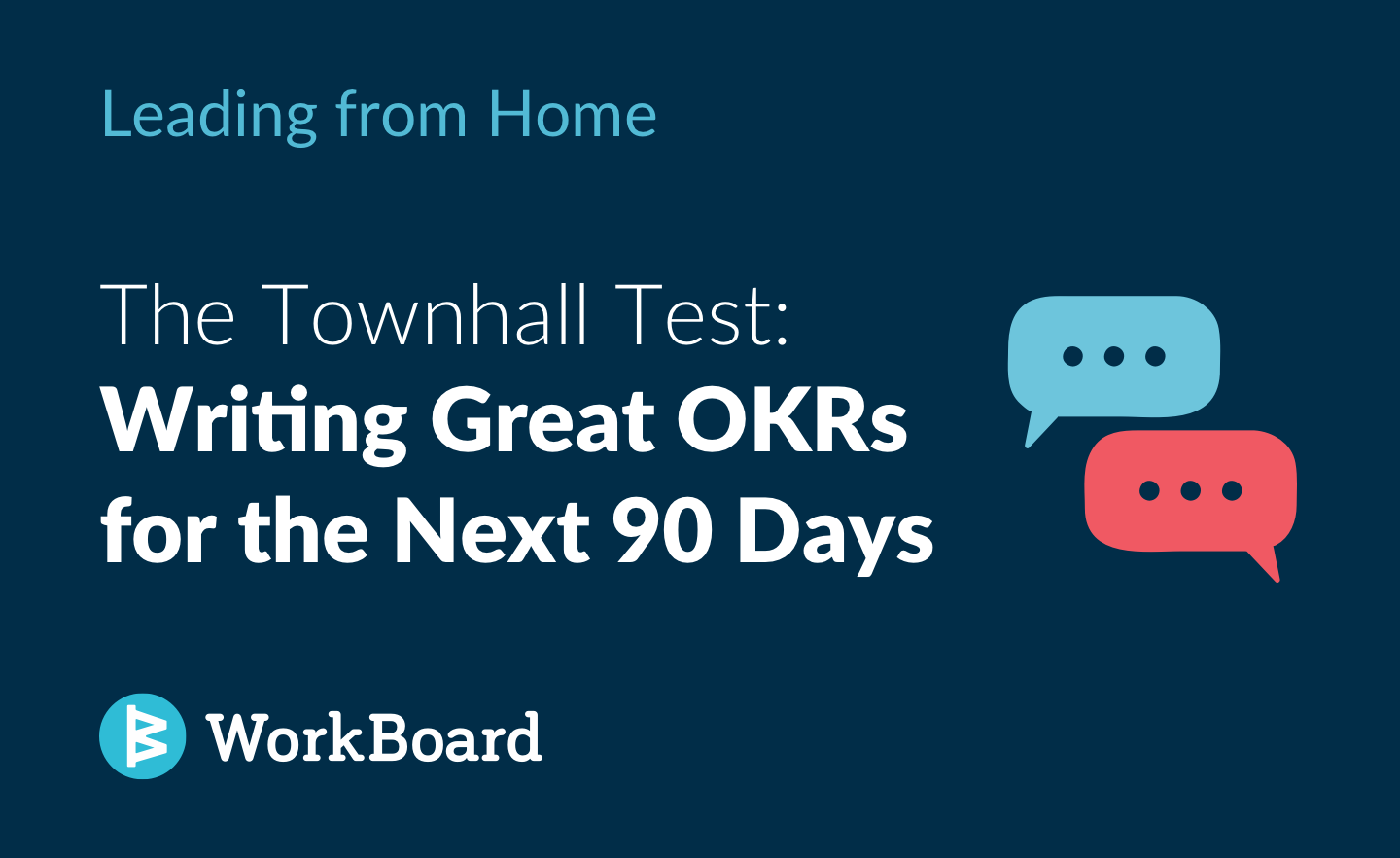
To realize the results-accelerating effects of OKRs, the leadership team and employees need to build new muscle and invest in changing habits. OKRs are an operating rhythm, an operational cycle and an ongoing process. Like all new things, it takes time, effort and commitment and you can improve every quarter.
As you adopt OKRs, the 5 most common — and completely avoidable — pitfalls are:
1. Set and forget.
Although people adopt OKRs because they want to drive better results, the biggest mistake is setting and forgetting OKRs at the start of each quarter. Leaders never bring them into staff meetings and business reviews; teams leave their OKR session excited and then returns to habitual work, recurring meetings, their mail and chat which consume all their time and focus for the quarter. End of quarter, everyone recognizes they failed to mobilize – and failure was optional. [See how Microsoft drives operational focus to achieve its best results.]
2. Check the box.
Similar to set-and-forget, some teams focus on getting OKRs “done” rather than defining great results they are motivated to drive in the quarter. Everyone has OKRs but no one cares.
3. No validation.
The OKR shines a light on aligned outcomes, so it’s crucial to have tie off conversations between adjacent teams and teams and their next-level leadership. A clean handshake ensures everyone’s time is well spent in the quarter and the whole is greater than the sum of the parts. Finding misalignment mid-quarter is a failure of leadership and of the team’s good will.
4. Confusing actions with results of actions.
While executives may naturally think in terms of metrics and results, front line teams may not have experience defining results and outcomes of their work. Quantifying results isn’t a natural exercise, and it often requires facilitation the first and second quarter – the business equivalent of a yoga teacher! Once the organization has the experience to define and drive results, it will do amazing things. Without the coaching, OKRs will quickly become tasks lists – duplicative effort that doesn’t add results velocity. [Check out this seminar on Outcome Mindset™ for more.]
“OKR coaches are critical to the whole journey.”
—Emily Bruzzone, Office of the COO, Workday
5. Burying OKRs.
You and your OKRs need to be present to win. Their greatest power is helping teams focus precious time, but when they’re out of sight they’re also out of mind. The best results come from weekly attention to KRs, the gaps and risks to team outcomes, and inter-team results dependencies – results management platforms give teams the power and the data to do their best. [See how Workday brings its OKRs into focus.]









